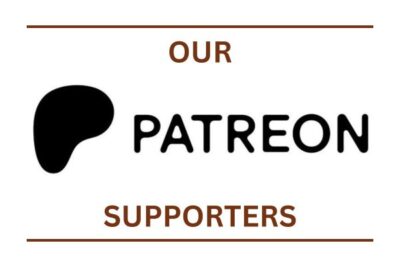After two weeks of dedicated toil by a team of 22 workers, Hogs Back Brewery, in Surrey, has completed the first commercial harvest from its new hop garden.

The team has collected and processed 1,500 kilos — or 30 zentners, the traditional measure of hops —- which are now in cold storage at the brewery, ready to be added to its range of beers.
Hogs Back staff, loyal customers from its Tongham TEA Club, and local residents worked in the eight-and-a-half-acre plot next to the brewery, cutting down the 6,600 hop bines, which had grown up to a height of 18 feet.
The bines were fed into a hop picker, which carefully separates the hop cones, required for brewing, from the rest of the bines. The cones were then dried in a kiln, quickly vacuum packed to capture their flavour, and are now cold stored at 5°C until needed by the brewing team.
To harvest the hops itself, rather than contract the task as in previous years, Hogs Back commissioned new equipment, including a tractor, reconditioned Wolf hop picker, and a new kiln. The picker and kiln were housed in the Hop Hangar, which functions as the Brewery Bar when not in use for hop processing. It is just yards from the hop garden and the brewhouse.
Hogs Back managing director, Rupert Thompson, said: “Bringing in our first harvest is a real achievement, and we’re delighted that it went so smoothly. Its success is a testament to the hard work by our harvest team, who put in long hours in the garden and Hop Hangar.
“We cut the hops at just the right time, then processed them quickly, so the hops we now have ready in storage are in optimum condition, which will translate into top quality, flavourful beers when they’re added to the brew.
‘When the garden is mature, we hope to harvest around 4,000 kilos’
“By harvesting the hops ourselves, we made sure they never left the brewery site, travelling just yards from the garden to the brewhouse, or ‘from field to firkin in a furlong’. Cutting our carbon footprint and becoming a more sustainable brewer has been our ambition since planting the original hop garden six years ago, and this harvest is a milestone in achieving that.”
He added: “The hop plants are still establishing themselves, so the crop was light this year, but it still represents about 25% of our total hop requirements. When the garden is mature, and with the right weather, we eventually hope to harvest around 4,000 kilos.”
The hop harvest team were rewarded for their labours with a supply of Green TEA — a version of Hogs Back’s flagship beer, brewed with newly-picked hops rather than dried ones. Green TEA is available for just a couple of weeks after harvest, and a limited number of firkins were also distributed to local pubs and drinkers.
Hogs Back harvested three hop varieties this year: Fuggles, used in its flagship TEA or Traditional English Ale; English Cascade, used in its Hogstar lager and Surrey Nirvana Session IPA; and Farnham White Bine, a traditional local variety that the brewer saved from near-extinction.
TEA Club member, Ted Block, said: “Helping to bring in the harvest was a wonderful experience. It was hard work, as it’s very physical, whether you’re pulling down hop bines onto the trailer, or feeding them into the picker or kiln.
“After the year we’ve had, being able to get out in the fresh air and sunshine was a really welcome change of scene. It felt good to be continuing the tradition of hop farming, which has been such an important part of life in Farnham. I’ll definitely be volunteering to help with next year’s harvest.”

Factfile: Hogs Back’s hop garden
• The September 2020 harvest was the first full harvest of the hop garden planted in spring 2019, occupying eight and a half acres of land on Manor Farm, next to the brewery. Last year, most of the hop plants were left in the ground, as is good practice, to allow them to grow stronger for subsequent years
• A total of 6,600 hop plants were harvested this year, including 2,000 transplanted from the original hop garden. Harvesting took seven days in total, spread over two weeks.
• The hop plants are supported with more than 100 large posts and ten miles of high-tensile steel wire, strung 18ft above the plants. A further 97 miles of string are then used to bind hop plants to the poles — the distance from Tongham to Leicester!
• Hogs Back planted its original, three-and-a-half-acre hop garden in 2014, and completed four harvests before moving to the larger site in spring 2019.
• Farnham was historically one of the most important hop farming regions in the UK. The Farnham area is ideal for hop growing, with a rich, loamy top soil over a chalky subsoil.
• The Farnham White Bine hop was developed in the early 1700s, just a mile and a half from the current Hogs Back brewery. It was highly prized for its aromas and was the precursor variety to the better-known Kent Goldings.
• Hop farming in Farnham started to wane at the end of the 19th centur,y in the face of growing competition from the Kent hops, which were preferred by London’s brewers, and the rising cost of agricultural labour. The industry declined and finally died out in the mid-1970s.



